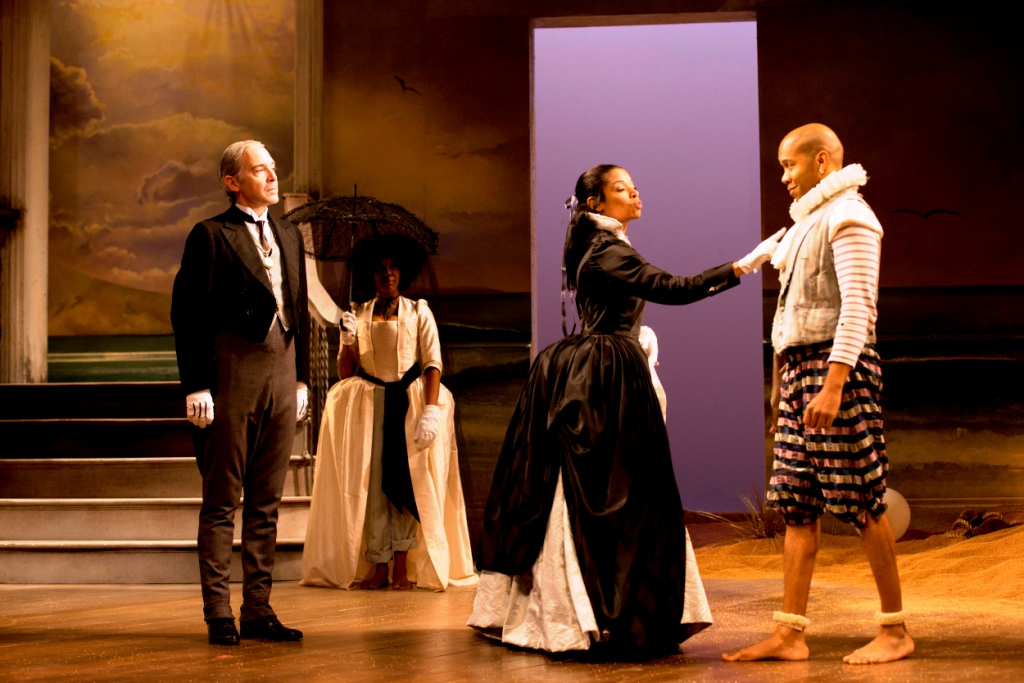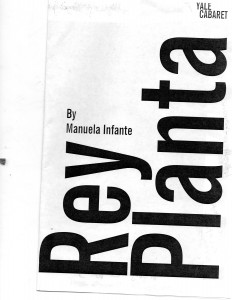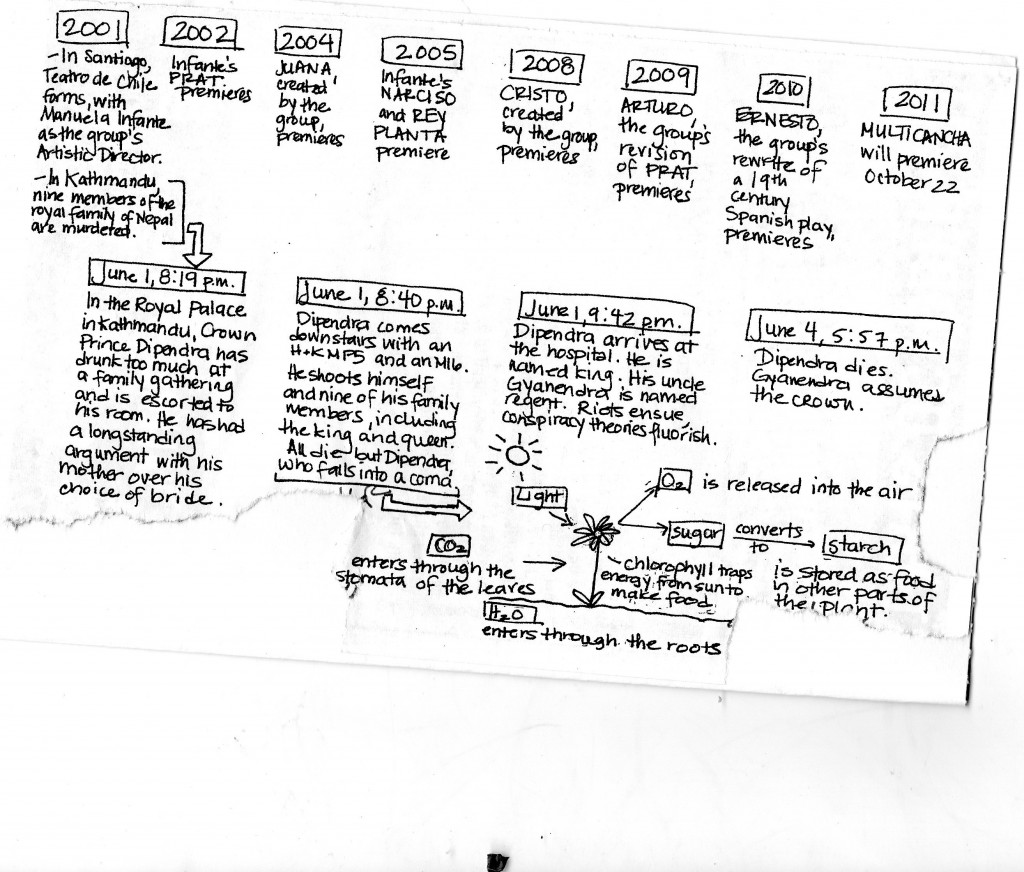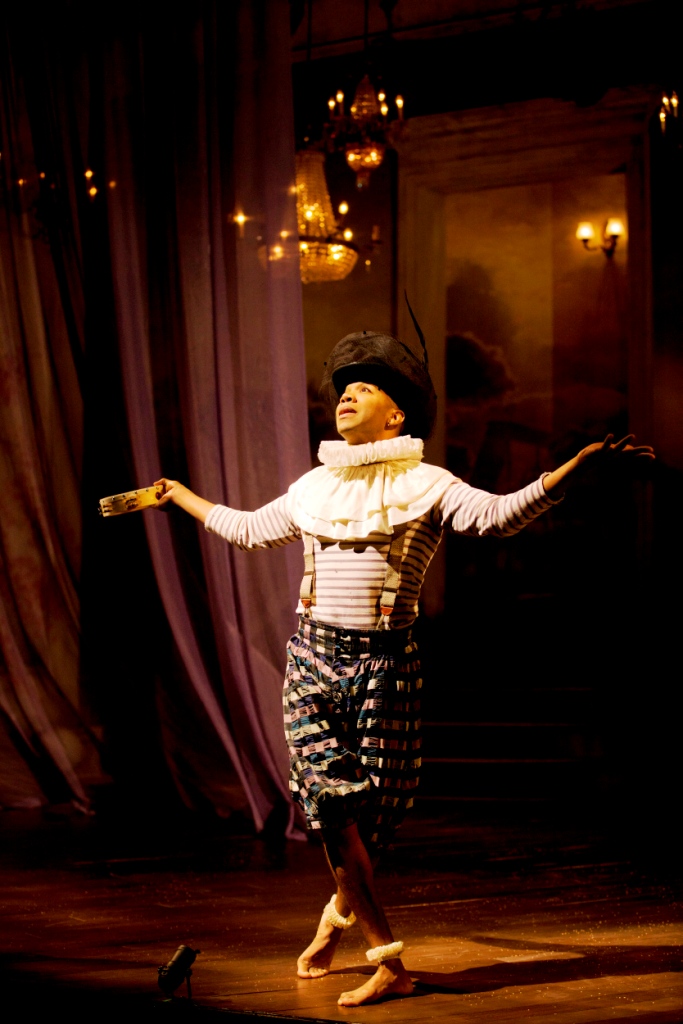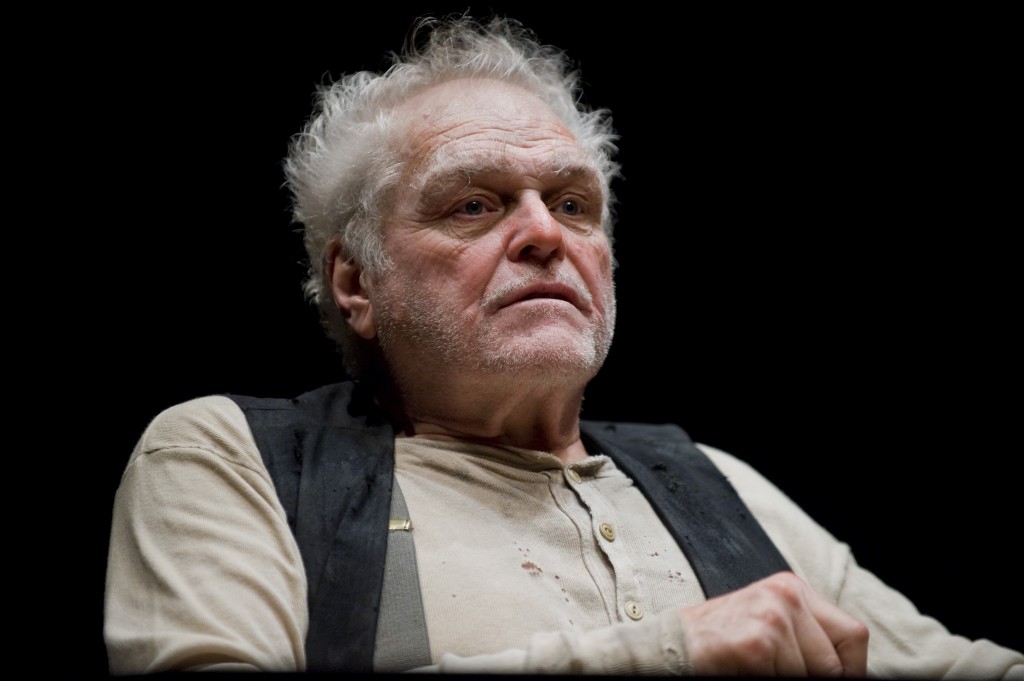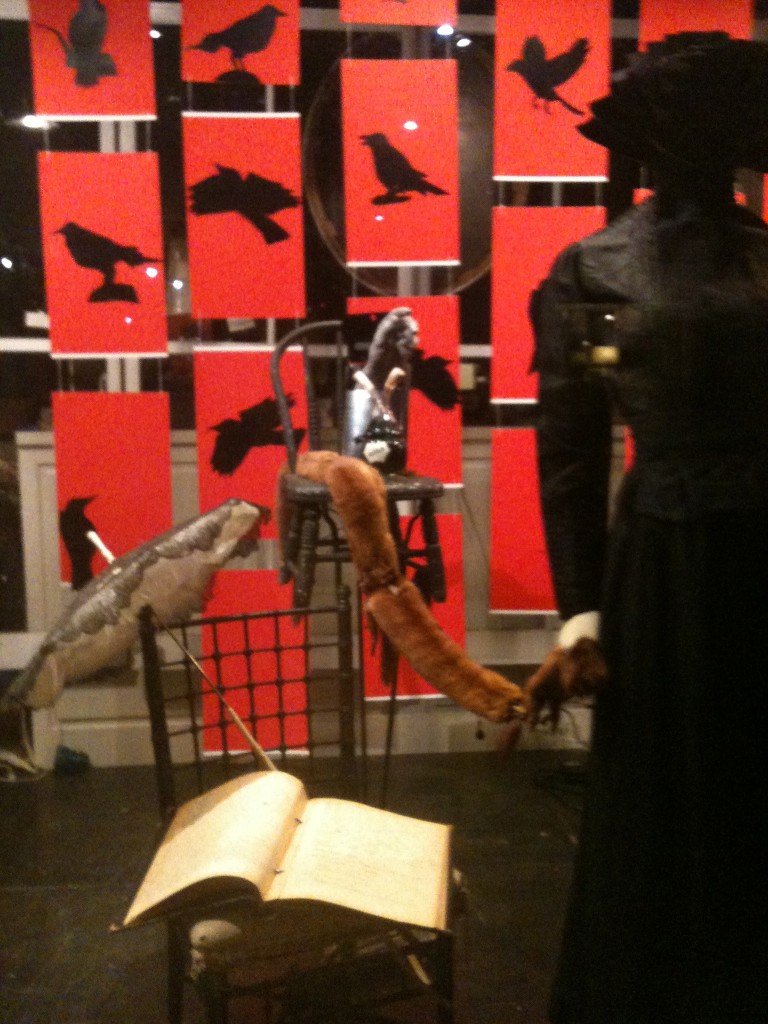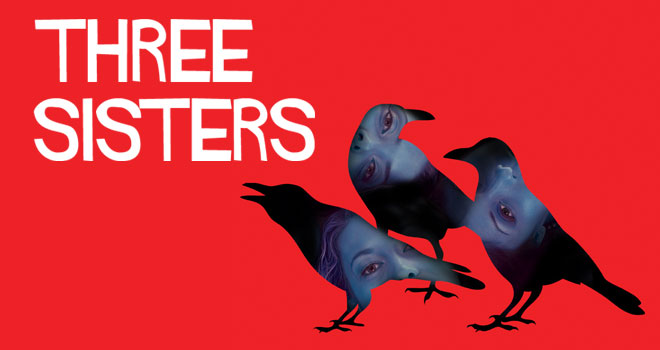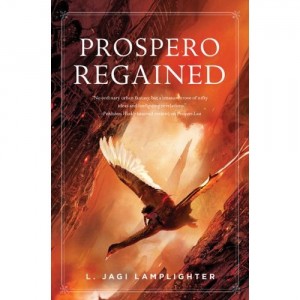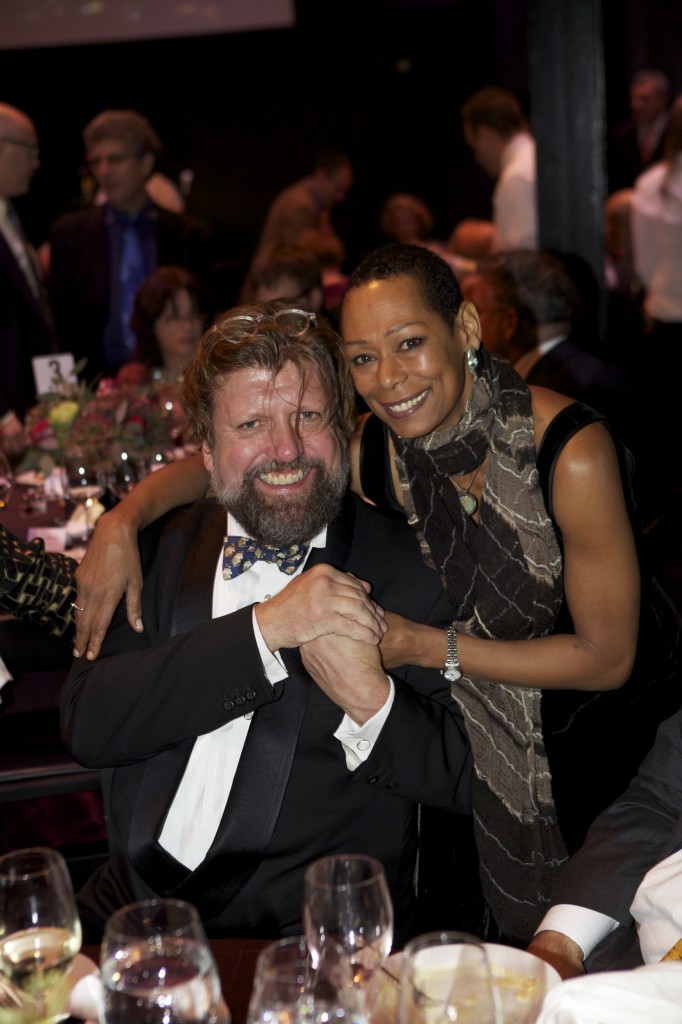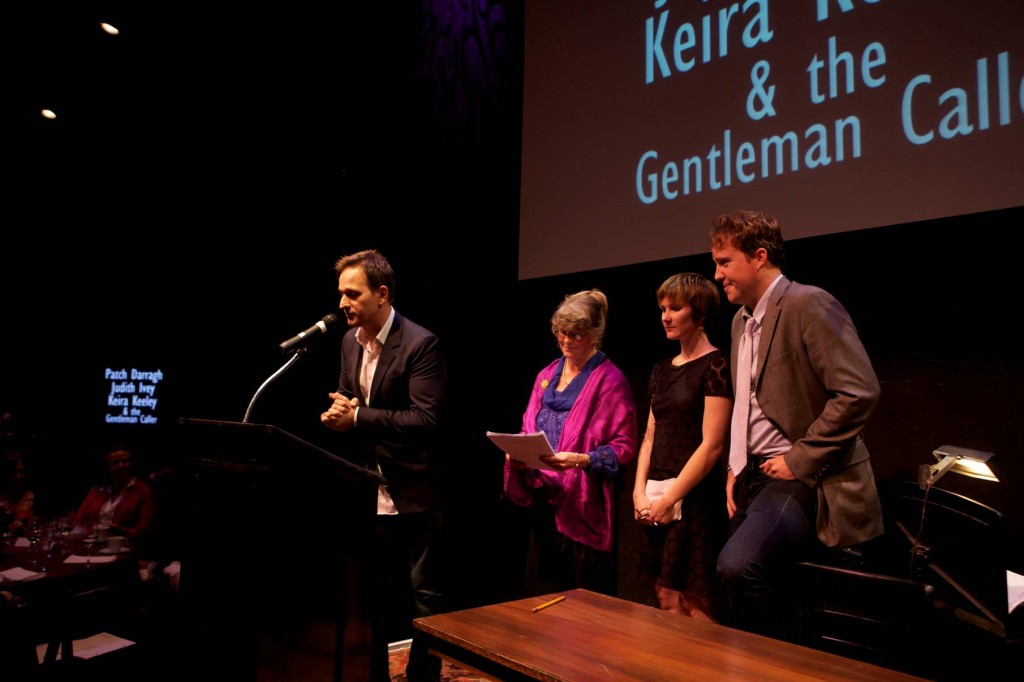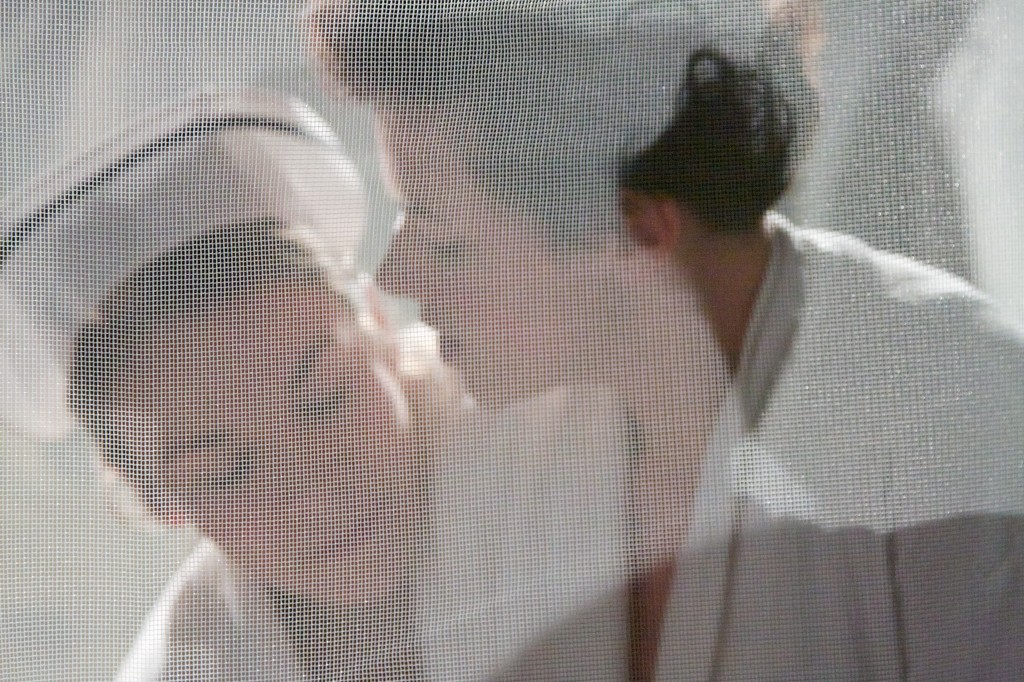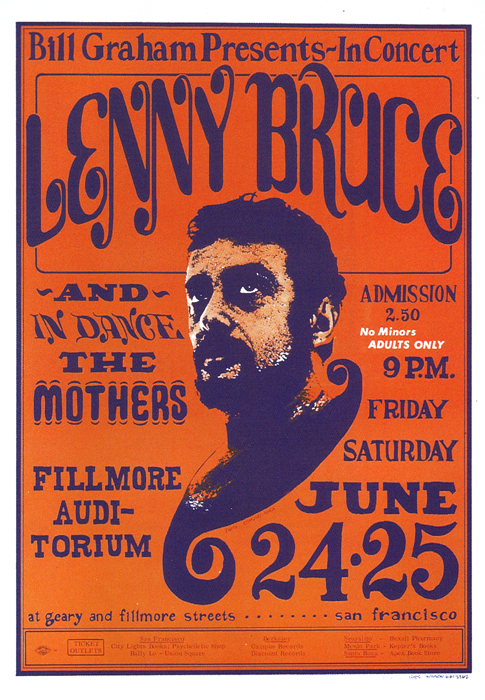
On Oct. 13, had he lived, Lenny Bruce would have turned 86 years old. You could joke about the very idea of him ever living that long, but the fact remains that there was nothing at all funny about him dying at age 40 in 1966.
Lenny Bruce’s preferred music was jazz, though in the last days of his life he apparently played recordings of Sousa marches at top volume on his home stereo while poring over the minutiae of court briefs related to his various arrests for obscenity.
Here’s a list of songs of more recent vintage which revere or otherwise reference Lenny Bruce. Lenny Bruce had a number of pop star friends, most prominently Phil Spector, who lent the impoverished comic money, produced two of his albums and paid for his funeral.
A good number of the songs listed here can be found in the admirably exhaustive “pop culture” section in the Lenny Bruce entry on Wikipedia. Wikipedia has snuffed such ephemeral sections out of its database, but the list has lived on at sites which steal info wholesale from Wikipedia.
I was able to find a bunch of items not on that list. I also sorted and cleaned the whole lot up, so it’s clearer which songs are full-scale tributes, which get by on casual mentions, and which Lenny Bruce tributes are actually covers of other people’s Lenny Bruce tributes.
Happy 86, Lenny Bruce.
Songs About Lenny Bruce
1. Grace Slick & the Great Society, “Father Bruce”: “Oh, oh, Lenny, we’re so glad you’re getting well, well, well Fuck!”
2. Tim Hardin, “Lenny’s Tune”: “I’ve lost a friend and I don’t know why.” Hardin wrote it, but the song was originally released by Nico, under the title “Eulogy to Lenny Bruce.” The Nico version (and title) was later covered by Damon & Naomi.
3. Bob Dylan, “Lenny Bruce”: This is the first Lenny Bruce song that springs to a lot of minds, but it’s not very good. Some critics have even conjectured that it’s not about Lenny Bruce at all. Stan Ridgway’s cover version at least gives it some bite.
4. Nuclear Valdez, “Unsung Hero (Song for Lenny Bruce)”: Also mentions Lenny’s ex-wife Honey.
5. Chumbawumba, Big Mouth Strikes Again.”: Revisits Bruce’s “To Come” routine, and references “Christ, judges, Lone Ranger … padres, pastors, popes, priests … critics, comics, you me…”
Songs Vaguely About Lenny Bruce
1. Balloon Squad, “Still Mad at That Lenny Bruce”: Plaintive pop tune off the band’s May Pangs and June Forays EP from 1994. Doesn’t directly mention Bruce; it’s about a guy whose girl’s gotten too hip and left him.
2. The Boo Radleys, “Rodney King (Song For Lenny Bruce)”: Just two lines of lyrics in the whole thing: “Do you know my name before you tear me apart? Do you care who I am?”
3. Elastic Purejoy, “If Samuel Beckett Had Met Lenny Bruce”: Speculative meeting of great modern thinkers. “A needle in the can killed the laughter.”
4. Juice Leskinen, “Lenny Bruce”: From the Finnish singer’s Grand Slam album, and all in Finnish.
5. John Mayall, “The Laws Must Change”: Lenny Bruce was trying to tell you many things before he died.”
6. Starpilot, “Lenny Bruce the Martyr”: Starpilot is a composer of electronic “chiptunes” with undecipherable lyrics which he performs live before a changing screen of projections.
7. The Heartsleeves, “Son of Lenny Bruce”: From the Peripheral People album, played in a blues/klezmer style: “I’m the tattooed Jew! I’m the son of Lenny Bruce!/Albert Einstein is my muse! Frida Kahlo cuts me loose!”
Songs Which Borrow Lenny Bruce Routines
1. Julian Cope, “Soldier Blue”: Samples routines from Lenny Bruce’s The Berkeley Concert album. The track was later remixed, with an added rap, by Michael Franti of Disposable Heroes of Hiphoprisy.
2. Frank Zappa. The Mothers of Invention opened for Lenny Bruce at the Fillmore West, listed him as an influence on the cover of the Freak Out! Album and referenced some of his routines in live shows.
3. Tom Russell, “Harry Partch, Jack Kerouac, Lenny Bruce”: A track from Tom Russell’s Hotwalker album, a conceptual sound collage utilizing words and sounds from a number of ‘60s beat and counterculture icons.
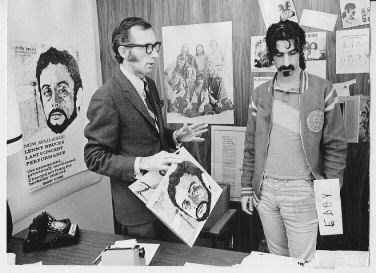
Songs Which Mention Lenny Bruce
1. REM, “It’s the End of the World As We Know It”: One of the best enunciated lyrics in a muddy list: “Lenny Bruce is not afraid.” Covered by Great Big Sea.
2. John Lennon & Yoko Ono, “We’re All Water”: “There may not be much difference/Between Marilyn Monroe and Lenny Bruce/If we check their coffins.”
3. Rent (the Broadway musical), “La Vie Boheme”: “Ginsberg, Dylan, Cunningham and Cage, Lenny Bruce, Langston Hughes, to the stage.”
4. Simon & Garfunkel, Seven O’Clock News/Silent Night. Lenny Bruce’s death is one of the items in the horrific newscast which serves as a counterpart to S&G’s rendition of the carol.
5. Simon & Garfunkel, “A Simple Desultory Philippic (or How I Was Robert MacNamaraed Into Submission).” “Well, I paid all the dues I want to pay/And I learned the truth from Lenny Bruce.”
6. The Stanglers, No More Heroes. “Whatever happened to dear old Lenny?” It’s presumed that this means Lenny Bruce, but I guess The Stranglers could be missing Leonard Bernstein.
7. Steve Earle, “F the CC”: “Dirty Lenny died so we could all be free.”
8. Metric, “On the Sly”: “For Halloween I want to be Lenny Bruce.”
9. Nada Surf, “Imaginary Friends.”:“Lenny Bruce’s bug eyes stare from an LP.”
10. Mighty Mighty Bosstones, “All Things Considered”: Tale of a street person who claims to have palled around with the biggest names of the 1960s, including “his closest friend, the one and only Lenny Bruce.”
11. The Auteurs, “Junk Shop Clothes”: “Lenny Bruce never walked in a dead man’s shoes even for one night. Junk shop shoes will get you nowhere.”
12. Kid Rock, “EMSP”: My name is Tino, you know, baby, let’s get funky/I’m like Lenny Bruce but I ain’t no goddamn junkie.” Bonus points for also mentioning George Raft.
13. Widespread Panic, “Tickle the Truth”: “Lenny Bruce was a prophet in the 1960s/Two shows at tonight’s inquisition.”
14. Genesis, “Broadway Melody of 1974”: “Lenny Bruce declares a truce and plays his other hand/ Marshall McLuhan, casual viewing, head buried in the sand.”
15. The Bicycle Thief, “Cereal Song”: “Being cool and looking good/Keith Richards and Lenny Bruce and all of them/Well, I give up.”
16. Nils Lofgren, “Mr. Hardcore”: “Thinks Lenny Bruce looked like Walt Disney.”
An Original Song Performed by Lenny Bruce
Lenny Bruce, “All Alone”: A stand-up routine about getting over a romantic break-up, wrapped in a lovely song about loneliness. Famously performed on The Steve Allen Show.
A Song Parodied by Lenny Bruce.
In an earlier post, I ran an excerpt from Kaye Ballard about how Lenny Bruce created a parody of “Autumn Leaves” at her request, which she recorded on her Boo-Hoo/Ha-Ha album. It’s right there in Ballard’s autobiography, but now I wonder if she got the album mixed up. I don’t own either record, but from what I’ve found online there’s no listing for “Autumn Leaves” or anything like it on Boo-Hoo/Ha-Ha, while “Autumn Leaves” is indeed listed as the lead track on the 1959 album Kaye Ballard Swings. Anybody record collectors out there able to clear this up?



